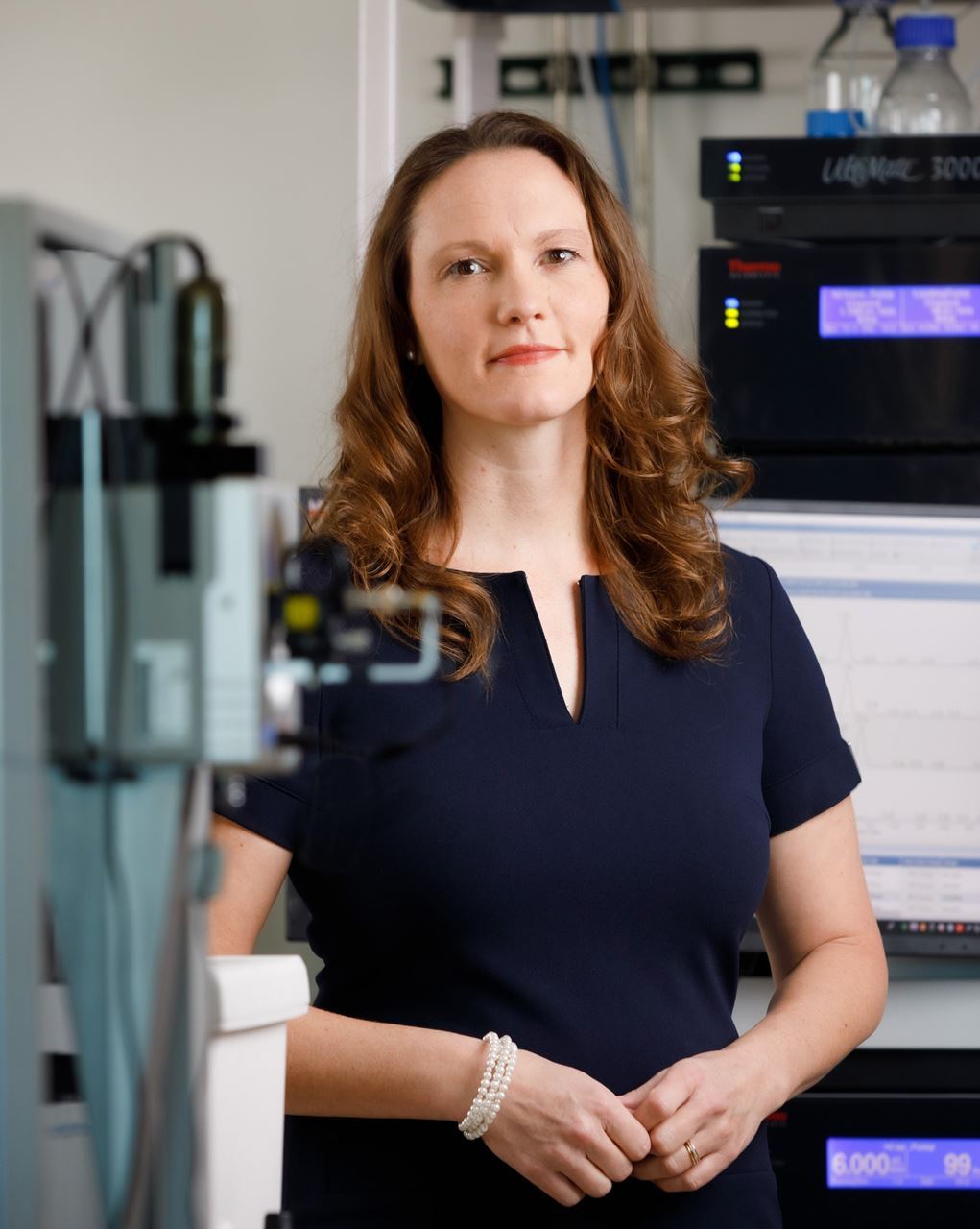|
HUPO Awards - 2023 recipients |
We are pleased to announce the winners of the HUPO Awards. These awards are presented annually at the world congress and recognize the outstanding efforts and achievements of individuals or groups in the field of proteomics. We gratefully acknowledge the support of Journal of Proteome Research (ACS Publications) and the HUPO Industrial Advisory Board (IAB) as sponsors of the 2023 awards.
DISTINGUISHED ACHIEVEMENT IN PROTEOMIC SCIENCES AWARD The Distinguished Achievement in Proteomic Sciences Award recognizes a scientist for distinguished scientific achievements in the field of proteomic science. Sponsored By: Journal of Proteome Research (ACS Publications)Bernhard Küster, Technical University of Munich, Germany
Professor Küster conducts research in the fields of proteomics and precision medicine. Together with an interdisciplinary team of chemists, biologists and bioinformaticians, his research focuses on questions relating to how therapeutic drugs work, which molecular mechanisms play a role in cancer and how these can be used for individual approaches to clinical treatment. And he has made great achievements in the above fields. He has mapped out a draft of the human proteome and a mass-spectrometry-based draft of the Arabidopsis proteome. Recently, he decrypted drug actions and protein modifications by dose- and time-resolved proteomics, exploiting the Tumor Proteome Activity Status for Future Cancer Therapies. Bernhard has built an international and interdisciplinary research team that has delivered first rate work and resulting publications. It is gratifying to observe that many of the computational tools his team has built and the reagents and workflows they have generated are now used by many laboratories around the world. He has published more than 200 papers on proteomics and bioinformatics and has co-founded two start-up companies that operate in the area of proteomics and artificial intelligence. He continues to invest all his energy in scientific ideas and talented people.
The Discovery in Proteomic Sciences Award recognizes a scientist for a single discovery in the field of proteomics. Hannes Röst, University of Toronto, Canada
CLINICAL AND TRANSLATIONAL PROTEOMICS AWARD The Clinical and Translational Proteomics Award recognizes a scientist in the field of clinical and translational proteomics. Rebekah Gundry, University of Nebraska Medical Center, USA  Rebekah’s technological developments include methodologies and bioinformatic tools to advance
our analysis of glycoproteins and glycan structures in clinical samples. CellSurfer (Nature
Cardiovascular Research, 2023) is a new automated cell surface glycoproteomics profiling
platform. CellSurfer enables highly specific and rapid analysis of human primary cell surfaceomes.
Accompanying novel bioinformatic tools include SurfaceGene, CIRFESS, and Veneer, which
altogether expedite the discovery, analysis, annotation, and candidate prioritization for downstream
validation. These bioinformatic tools are freely available as easy to use web applications, which
promote adoption by other investigators. Veneer is the first tool to provide standardized processing
and reporting of mammalian cell surface glycoproteome data, which is urgently needed in the
proteomics field. glyPAQ is a new high throughput sample preparation approach for structural
glycomics. glyPAQ enables, for the first time, automated, high throughput sample preparation of
clinical samples for structural isomer quantification. glyPAQ is easy to use, which will encourage
future implementation by investigators without previous expertise in glycomics. glyPAQ is poised
to impact the proteomics field by providing a way for more investigators to include glycan
structures in their analyses, which is becoming recognized as the next ‘omics wave for clinical
biomarker development. Rebekah’s technological developments include methodologies and bioinformatic tools to advance
our analysis of glycoproteins and glycan structures in clinical samples. CellSurfer (Nature
Cardiovascular Research, 2023) is a new automated cell surface glycoproteomics profiling
platform. CellSurfer enables highly specific and rapid analysis of human primary cell surfaceomes.
Accompanying novel bioinformatic tools include SurfaceGene, CIRFESS, and Veneer, which
altogether expedite the discovery, analysis, annotation, and candidate prioritization for downstream
validation. These bioinformatic tools are freely available as easy to use web applications, which
promote adoption by other investigators. Veneer is the first tool to provide standardized processing
and reporting of mammalian cell surface glycoproteome data, which is urgently needed in the
proteomics field. glyPAQ is a new high throughput sample preparation approach for structural
glycomics. glyPAQ enables, for the first time, automated, high throughput sample preparation of
clinical samples for structural isomer quantification. glyPAQ is easy to use, which will encourage
future implementation by investigators without previous expertise in glycomics. glyPAQ is poised
to impact the proteomics field by providing a way for more investigators to include glycan
structures in their analyses, which is becoming recognized as the next ‘omics wave for clinical
biomarker development. SCIENCE AND TECHNOLOGY AWARD Recognizes an individual or a team in private industry for the commercialization or (not necessarily) the invention of products, technologies or procedures which had the demonstrated effect in enabling proteome researchers to advance their science. Sponsored By: HUPO Industrial Advisory Board (IAB)
The team developed methodology and implemented a framework for analysis of global cellular thermal shift assay (CETSA®) data. The protocol entails processing of search engine output files (data filtering and normalization), statistical analysis & visualization as well as results sharing and browsing in an on-line data portal format. This has been instrumental in the communication of project output data to external customers, collaborators and colleagues. Furthermore, at Pelago they have been instrumental in designing and carrying out large scale, inhouse studies applying CETSA® MS to profile large compound sets in live cells. To date, this collection of CETSA fingerprints is made up from >400 test compounds across 3 cell lines (K562, HepG2 & U87MG) covering a wide range of different compound classes & disease areas and in different cellular matrices. The data analysis methodology and platform allows efficient processing and in-depth analysis of large scale LC-MS based CETSA® MS proteome profiling data. In addition, the large scale in-house studies analysed add significantly to our understanding of general and specific cellular responses, typical reaction patterns and phenomena observed in CETSA® experiments. The team has recognised that there is a heavy responsibility to control a patent, in that you should then also lead the field towards the the best applications and use. RISING STAR AWARD This career achievement award is designed to recognize early career researchers who have had an exceptional impact on the proteomics field and community. This impact can take the shape of publications, patents obtained, development of a commercial product, establishment of a course, training program, workshop or any other contributions or service to the field of proteomics. Sponsored By: HUPO Early Career Researcher (ECR) Committee Nicholas M. Riley, University of Washington, USA
|



 Hannes is a world-wide leader who has developed the field’s main analysis
strategies and statistical algorithms: During his PhD thesis, he co-developed the SWATH-MS
method through simulations that were crucial to demonstrate feasibility of the approach and then
invented the OpenSWATH algorithm (Nature Biotechnology 2014), the pioneering software for
targeted analysis of DIA data. It matched the quantitative performance of previous targeted
proteomics methods), while increasing their throughput by orders of magnitude. As a postdoc with
Mike Snyder, Stanford, he developed the TRIC algorithm (Nature Methods 2016), the first crossrun
alignment algorithm (“match between runs”) for targeted proteomics data. It solved the problem of
chromatographic retention time shifts in targeted proteomics, allowing to scale proteomics
experiments to over 1000 samples to study longitudinal variation in human blood plasma (Cell
Systems 2018, Nature 2019). Recently he developed the theoretical and computational basis for the
completely novel DIA method diaPASEF, combining trapped ion mobility with DIA by
synchronizing the quadrupole position for DIA isolation to the ion mobility elution. The method
achieves unprecedented number of peptide and protein identifications on a TOF instrument (Nature
Methods 2020).
Hannes is a world-wide leader who has developed the field’s main analysis
strategies and statistical algorithms: During his PhD thesis, he co-developed the SWATH-MS
method through simulations that were crucial to demonstrate feasibility of the approach and then
invented the OpenSWATH algorithm (Nature Biotechnology 2014), the pioneering software for
targeted analysis of DIA data. It matched the quantitative performance of previous targeted
proteomics methods), while increasing their throughput by orders of magnitude. As a postdoc with
Mike Snyder, Stanford, he developed the TRIC algorithm (Nature Methods 2016), the first crossrun
alignment algorithm (“match between runs”) for targeted proteomics data. It solved the problem of
chromatographic retention time shifts in targeted proteomics, allowing to scale proteomics
experiments to over 1000 samples to study longitudinal variation in human blood plasma (Cell
Systems 2018, Nature 2019). Recently he developed the theoretical and computational basis for the
completely novel DIA method diaPASEF, combining trapped ion mobility with DIA by
synchronizing the quadrupole position for DIA isolation to the ion mobility elution. The method
achieves unprecedented number of peptide and protein identifications on a TOF instrument (Nature
Methods 2020).
 Alexey Chernobrovkin and Tomas Friman, Pelago Bioscience
Alexey Chernobrovkin and Tomas Friman, Pelago Bioscience

.png)
















